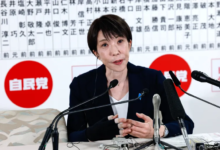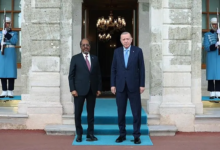Federal Reserve Holds Interest Rates Steady Amid Rising Inflation and Unemployment Concerns

The U.S. Federal Reserve decided to keep interest rates unchanged at the conclusion of its two-day policy meeting, citing growing concerns over inflation and unemployment. This decision comes amid heightened economic uncertainty fueled by the Trump administration’s tariff-based trade policies.
The Federal Open Market Committee (FOMC) unanimously voted to maintain the federal funds rate within the target range of 4.25% to 4.50%, noting in its statement that “uncertainty surrounding the economic outlook has increased.”
Mixed Indicators: High Inflation and Ongoing Growth
The Fed’s statement acknowledged that economic activity continues to expand at a strong pace, with unemployment remaining low and labor market conditions stable. However, inflation remains above the Fed’s long-term target of 2%, despite easing slightly to 2.4% in March year-over-year, down from 2.85% in the previous month.
The central bank reiterated its dual mandate of promoting maximum employment and price stability over the long run. Nevertheless, it acknowledged that the outlook has become increasingly uncertain, particularly in light of external pressures such as the administration’s tariff policies.
Political Pressure and Market Volatility
White House economic advisor Kevin Hassett revealed last month that President Donald Trump and his team had discussed the possibility of removing Federal Reserve Chair Jerome Powell. The speculation unsettled markets, though Trump later walked back the threat while reiterating his call for lower borrowing costs, referring to Powell as “Mr. Always Too Late.”
This tension comes as the Fed’s latest Beige Book report showed rising prices and slowing growth in parts of the country, as both households and businesses adjust to the tariff measures introduced as part of Trump’s global trade overhaul.
Data-Dependent Approach
Fed Chair Jerome Powell stated last month that the central bank is taking a wait-and-see approach before making any changes to interest rates, adding that recent market volatility is a logical response to fundamental shifts in trade policy.
“We are currently in a good position to wait for greater clarity before considering any adjustments to monetary policy,” Powell said, warning of a potentially difficult scenario in which inflation rises due to tariffs while growth slows.








